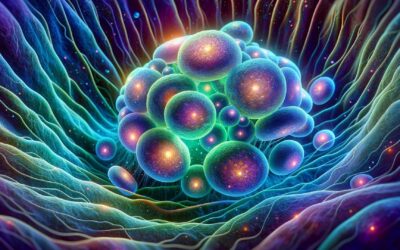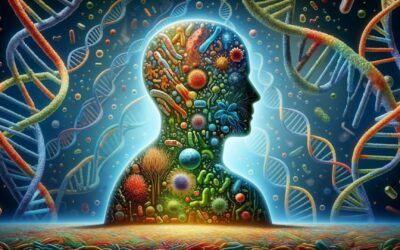In a future not so distant, a small group of pioneers gazes out at a stark, red landscape, their new home. They are the first humans to set foot on Mars, and with that step, they cross a boundary that for all of human history has been insurmountable. These are not just astronauts; they are settlers in a new world, a world 54.6 million kilometers from everything familiar. Surviving space — it’s a concept that, until recently, existed only within the bounds of science fiction. But as we edge closer to the reality of human life on another planet, particularly Mars, we must grapple with a complex web of logistical, physical, and psychological challenges.
Imagine the journey first. A cramped spacecraft, months of travel through the void of space, far from the blue skies and warm sun of Earth. The settlers will have left behind families, friends, and the comforting rhythms of life on Earth. Psychological resilience is the first necessity for these interplanetary pioneers. They will need to combat isolation, confinement, and the stress of a high-risk environment. The psychological health of the settlers will be as crucial as their physical well-being, requiring careful selection, training, and support systems that allow for communication with loved ones back on Earth and mental health care while on Mars.
Arrival on Mars presents its own monumental challenges. The settlers are greeted by an environment harsh and unyielding. With temperatures far below freezing, a thin atmosphere primarily composed of carbon dioxide, and frequent, blinding dust storms, Mars is a planet that does not welcome human life without significant adaptation. The first need, then, is shelter — habitats that can mimic the conditions on Earth to some degree.
These habitats will be technological marvels, designed to shield against radiation from the sun’s rays and to maintain pressure and breathable air for their inhabitants. They will need to be mostly self-sustaining and capable of supporting human life for extended periods. They must have systems for recycling water and air, generating electricity (likely through solar panels), and maintaining comfortable temperatures.
Food, the sustenance of life, presents another profound challenge. The thin, arid soil of Mars lacks the nutrients found in Earth’s soil. Traditional agriculture, as we know it, is impossible there. The settlers will need to bring with them innovative solutions for growing food, likely in the form of hydroponic or aquaponic systems that can function within the confines of their habitats. These closed-loop systems would allow for the growth of plants without soil, using nutrient-rich water instead.
Water, that most basic requirement for life as we know it, is scarce on the surface of Mars. Though recent discoveries suggest that there may be briny remnants of liquid water present at certain times of year, and ice deposits beneath the surface, accessing and utilizing these resources will be a significant hurdle. Technologies to extract water from the Martian atmosphere and soil, or to recycle it within the habitats, will be indispensable.
Surviving on Mars will also necessitate a rethinking of society and community. The first settlers will need to be more than just astronauts; they will need to be plumbers, electricians, doctors, and farmers. They will need to build a new society from scratch, establishing governance structures, social norms, and perhaps even a new economy. They will be tasked with building a community that can not only survive but thrive under extraordinary circumstances.
This is a life far removed from the world we know. The settlers will watch the sun rise and set on a distant world, through the pink-tinged sky of their new home. They will know that every step they take on the Martian surface is a step into history, a bold stride into a future that humanity is still just beginning to imagine.
And yet, despite the myriad challenges and the distance from all that is familiar, there is a profound and beautiful potential in this vision of survival in space. The settlers on Mars, in crafting a new life on a new world, will embody the most remarkable aspects of the human spirit: our curiosity, our resilience, our capacity for innovation and adaptation, and our profound and enduring urge to explore and to reach beyond the boundaries of our known world.
In surviving space, these settlers will do more than simply stay alive. They will forge a new chapter in the human story, one that stretches our understanding of what is possible and redefines our place in the cosmos.
Keywords:
- pioneers: People who are among the first to explore or settle in a new area.
- insurmountable: Too great to be overcome.
- psychological resilience: The capacity to recover quickly from difficulties; mental toughness.
- interplanetary: Between or among planets, especially within a solar system.
- habitats: Places or environments where organisms live.
- self-sustaining: Capable of maintaining oneself or itself by independent effort.
- hydroponic: A method of growing plants without soil, using mineral nutrient solutions in water.
- aquaponic: A system that combines aquaculture (raising aquatic animals) with hydroponics (growing plants in water).
- closed-loop systems: Systems in which the output is recycled and used as an input, creating a self-contained and waste-free operation.
- myriad: A countless or innumerable number.
Key Takeaways:
- Psychological resilience and preparation are essential for humans living far from Earth, as they will experience isolation and a high-risk environment.
- Habitats on Mars will need to be advanced, self-sustaining environments capable of shielding inhabitants from radiation and maintaining pressure and breathable air.
- Traditional agriculture will be impractical on Mars; hydroponic or aquaponic systems represent viable alternatives for food production.
- Water is scarce on Mars, making the technologies to extract and recycle it indispensable for human survival there.
- Settlers on Mars will need to possess a wide range of skills, from plumbing and electrical work to medical knowledge.
- Establishing a new society on Mars will involve creating governance structures, social norms, and potentially a new economy.
- The endeavor to settle on Mars, despite the challenges, embodies the profound human spirit of curiosity, resilience, and exploration.
Check out the Solar System Article Series
Cosmic Chronicles: The Living Story of Our Solar System (Featured Article)
The Great Solar Show: Best Spots on Earth to Experience Solar Phenomena
The Real Martians: A Deep Dive into the Search for Life on Mars
Navigating Night Skies: A Beginner’s Guide to Backyard Astronomy
Cosmic Art: How the Solar System Has Inspired Artists Throughout History
Surviving Space: What Humans Need to Live on Another Planet
Solar System Self-Care: Wellness Lessons from the Planets












0 Comments